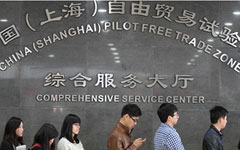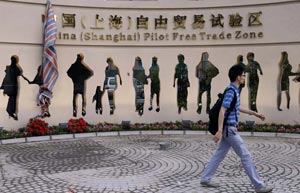But financial suppliers should not expect a Pudong market rate determined solely by the markets
In the tradition of earlier policies, Chinese authorities have launched another small, reversible but potentially significant step of reform toward a further opening of the economy.
In the Pudong district of Shanghai they have opened a pilot free trade zone for hitherto highly regulated service sectors, in particular financial services.
|
 |
|
 |
Beyond that trade policy aspect, from a macroeconomic point of view, this zone suggests the questions whether the authorities will allow the renminbi to be traded freely without any interventions from the central bank and, if so, under what assumptions a market rate different from the official rate would emerge, and in what direction the market rate would differ.
Finally, would the central bank accept such a market rate as a signal to adjust its interventions to that rate in order to keep differences between the market and official rates small and thus help gradually erode the border between the renminbi rate in the rest of China and the one in the zone?
Let us assume that a Chinese financial service supplier bets on continuing problems in the US to extend the debt break and perhaps even bets on a temporary default. He or she would offer a financial paper foreseeing a strong dollar depreciation and a stronger renminbi.
Admittedly, this is an extreme assumption. But any other supplier seeing a weaker dollar in the future for different reasons could be in a similar position. In the zone, the supplier finds a partner taking the opposite position, thus believing in a stronger dollar. The result could be a sharp appreciation of the renminbi market rate and a much lower renminbi/dollar rate than the official one.
|
 |
 |
| China (Shanghai) Pilot Free Trade Zone |
